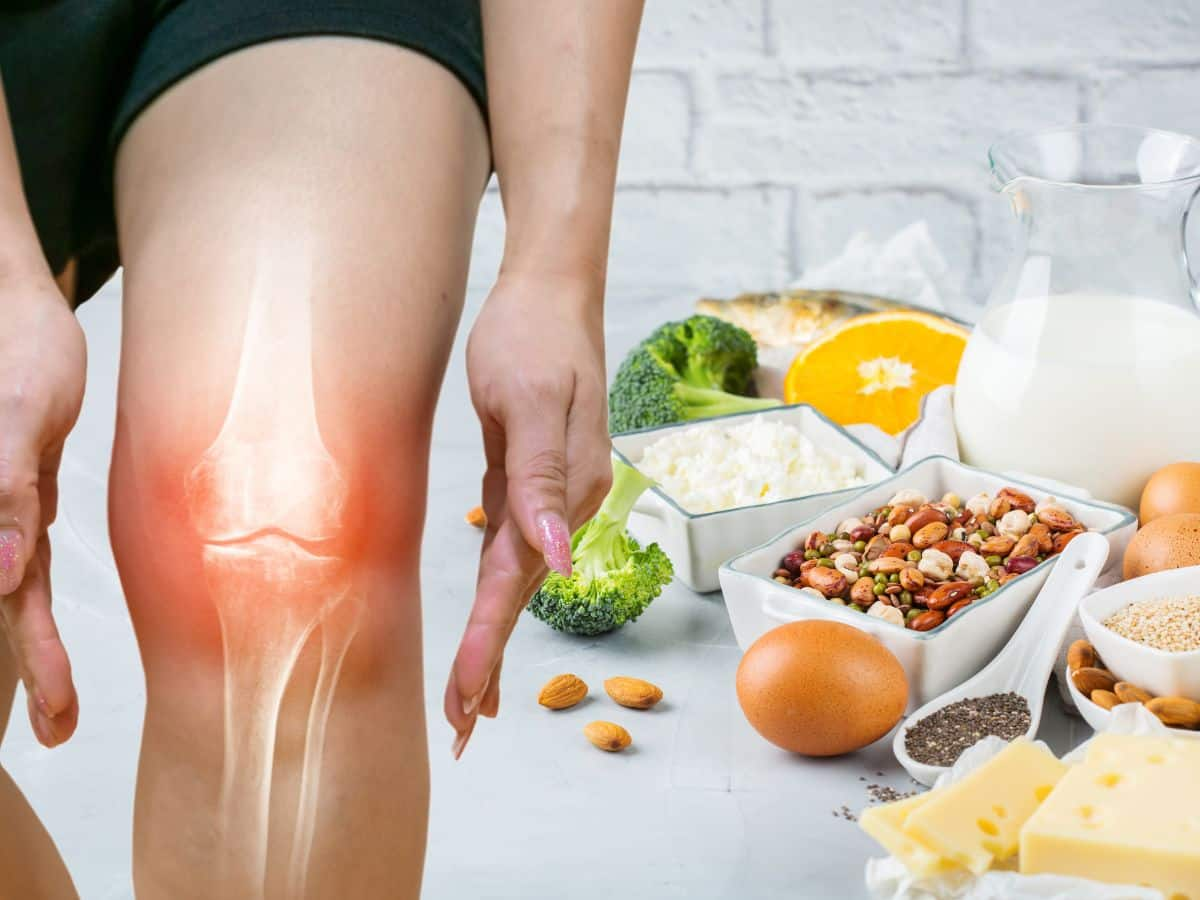10 foods that pack more calcium than a glass of milk. Boost your bone health with these calcium-rich choices. Calcium is essential for maintaining strong bones and teeth , as it plays a crucial role in bone density and structure.
Beyond its importance for skeletal health, calcium also supports nerve function, muscle contraction, and blood clotting. While milk is a well-known source of calcium, it's not the only option available. Many foods high in calcium , offering a diverse range of choices for those who may not consume dairy or are looking to enhance their calcium intake.

By incorporating various calcium-rich foods into your diet, you can boost your calcium levels effectively and support overall health, ensuring your body gets the vital nutrients it needs for optimal function and well-being. This article insights you about the equation of calcium and your body and also some of their best source apart from milk. High Calcium Foods For Healthy Bones While milk is often associated with calcium, many other foods can provide even higher amounts of this essential mineral.
Leafy greens such as kale, bok choy, and collard greens are excellent sources of calcium. For example, a cup of cooked collard greens contains about 266 mg of calcium, which is more than the 250 mg found in an 8-ounce glass of milk. Incorporating these greens into your diet can help you meet your calcium needs while also providing other essential vitamins and minerals .
Sardines, particularly when eaten with their bones, are a fantastic source of calcium. A 3.75-ounce can of sardines offers around 325 mg of calcium.
Not only are sardines rich in calcium, but they also provide omega-3 fatty acids, which are beneficial for heart health. Many plant-based milks, such as almond, soy, and oat milk, are fortified with calcium to match or exceed the calcium content found in cow's milk. For instance, a cup of fortified almond milk can provide up to 450 mg of calcium.
These options are especially useful for those who are lactose intolerant or follow a vegan diet. Tofu, a staple in many vegetarian and vegan diets, can be a significant source of calcium, especially if it's prepared with calcium sulfate. A half-cup serving of tofu can contain between 253 mg and 860 mg of calcium, depending on how it is processed.
Tofu is versatile and can be used in a variety of dishes, making it an easy way to boost calcium intake . var firstScrolled3 = false; window.addEventListener("scroll",(event) => { if(!firstScrolled3) {window.
_taboola = window._taboola || []; _taboola.push({ mode: "thumbnails-m", container: "taboola-mid-article-thumbnails", placement: "Mid Article Thumbnails", target_type: "mix" }); firstScrolled3 = true; } }); Chia seeds are small but mighty when it comes to calcium content.
Just two tablespoons of chia seeds provide approximately 180 mg of calcium. They are also packed with fiber and omega-3 fatty acids, which contribute to overall health. Sesame seeds, especially when consumed in the form of tahini (a sesame paste), are another excellent calcium source.
Two tablespoons of tahini contain around 130 mg of calcium. Sesame seeds can be sprinkled on salads, incorporated into baked goods, or enjoyed as a spread. Edamame, or young soybeans, are not only a great snack but also a good source of calcium.
A cup of cooked edamame provides about 120 mg of calcium. They are also rich in protein and fiber, making them a nutritious addition to your diet. Broccoli is another green vegetable that offers a healthy dose of calcium.
A cup of cooked broccoli provides approximately 62 mg of calcium. It's also loaded with vitamins C and K, making it a great all-around vegetable for bone health. Almonds are not only a tasty snack but also a good source of calcium.
One ounce (about 23 almonds) contains around 76 mg of calcium. Almonds are also rich in healthy fats, protein, and other nutrients that support overall health. Dried figs are a sweet and nutritious way to boost your calcium intake.
A quarter-cup serving of dried figs contains approximately 90 mg of calcium. They also provide dietary fiber and antioxidants, which contribute to digestive health and overall well-being. Disclaimer: This content including advice provides generic information only.
It is in no way a substitute for a qualified medical opinion. Always consult a specialist or a doctor for more information on controlling the above health issues..

















